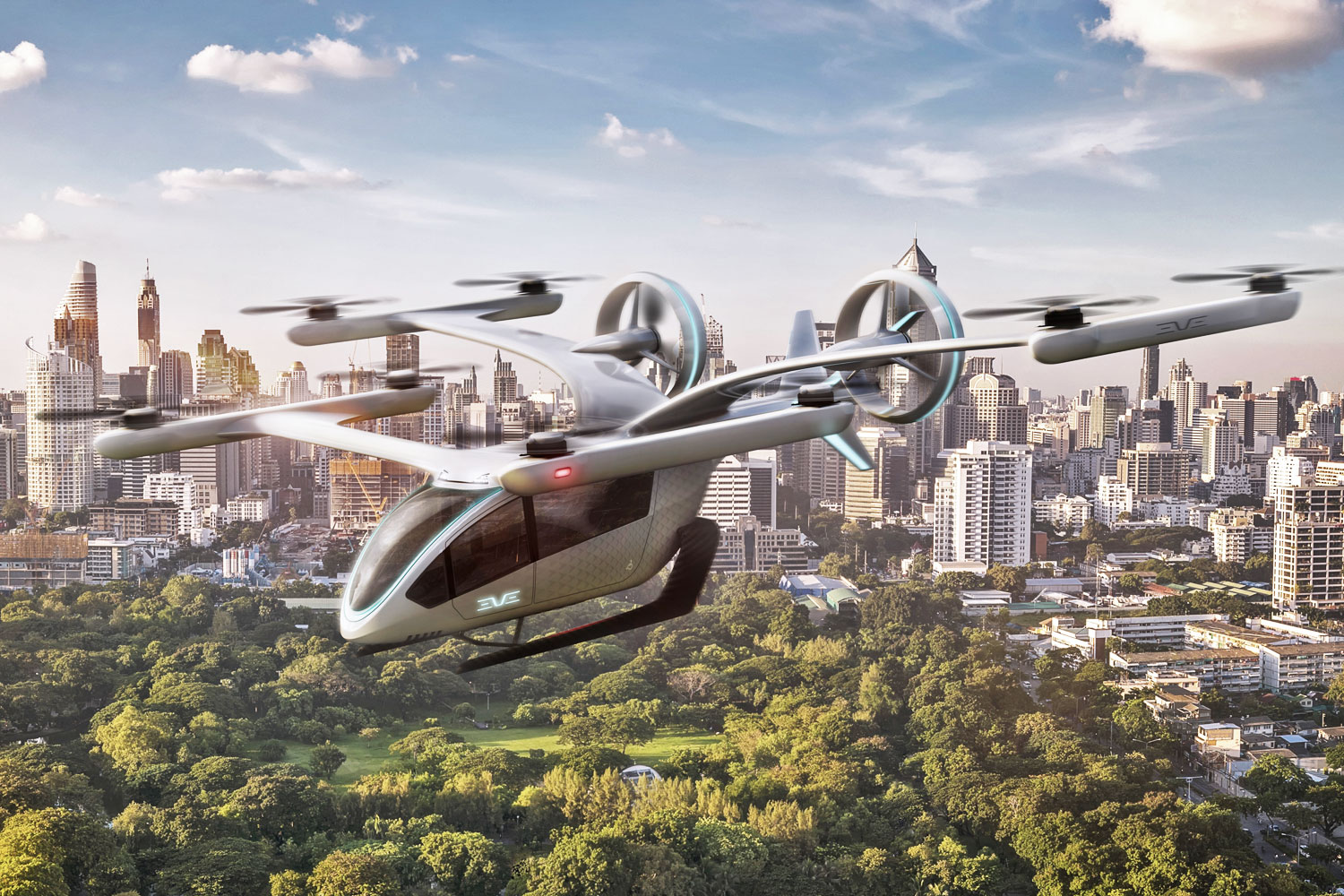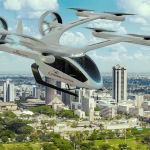Nairobians are the verge of experiencing flying taxis after the national carrier and Brazilian aircraft manufacturer Embraer signed an agreement that would spearhead this innovation in the market.
The taxis are expected to cut travel time from the Jomo Kenyatta International Airport (JKIA) to the city centre to six minutes.
The Brazilian company signed a Memorandum of Understanding with the Kenya Airways last week, through the national carrier’s newly established subsidiary Fahari Aviation, to establish Electric Vertical Aircraft (EVA) starting 2025.
Fahari is Kenya Airways wing that deals with drones and has already opened unmanned aerial vehicles school to train interested Kenyans.
EVAs carry a load of 250 kilograms at 400km per hour with a range of 250km. The aircraft is completely autonomous as it does not require any human pilot intervention as it flies under the control of automatic systems such as radar, lidar and 12 camera sensors.
But according to the company, EVA will begin as a manned aircraft (with one pilot).
EVA is ideally suited as an urban air mobility aircraft bringing all traditional aviation travellers closer to their final destination efficiently and comfortably.
The new partnership is also anchored on the need to introduce zero-emission electric planes in the transport sector in Kenya.
Andre Stein, CEO of Embraer’s Urban Air Mobility (UAM) Solutions unit, said the introduction of flying taxis would provide an alternative mode of transportation for passengers pressed for time.
This collaboration, he said, aims at developing operational models for the wide accessibility of Urban Air Mobility to support Fahari Aviation’s key markets.
In addition, the partnership will establish” a foundation of concepts and procedures to safely scale EVA throughout the country in the coming years”.
EVA will support Fahari Aviation, the Unmanned aircraft systems (UAS) division of Kenya Airways that promotes safe and secure UAS usage in the region, in establishing its UAM network and collaborate on the required Urban Air Traffic Management (UATM) procedures and UAM operating environment.
This partnership will also allow Fahari Aviation to support Eva’s aircraft and product development process which will help guide the integration of UAM with Kenya Airways’ overall operations.
“We are thrilled to partner with Kenya Airways to provide new forms of air mobility throughout the region for both people and goods. The creation of disruptive and widely accessible Urban Air Mobility solutions will help democratise mobility by making it more accessible, affordable and giving communities more options,” said Mr Stein.
He said the partnership will foster long-term mobility strategies throughout the country and region.
“With our aircraft and aerospace services backing and Kenya Airways’ innovative approach to air mobility, we are enthusiastic about opening this region to more sustainable and community-friendly air access for all,” he said.
Allan Kilavuka, Kenya Airways chief executive officer said Fahari Aviation is at the forefront of exploring advanced technologies, with a key focus in aviation, starting with drones.
“With this partnership, we look to develop innovative air mobility solutions for our clients in Kenya and throughout the region,” said Mr Kilavuka.
The partnership will deliver a robust strategy to provide Fahari Aviation’s passengers with a sustainable, accessible, and affordable transportation option.
Source: Business Daily






